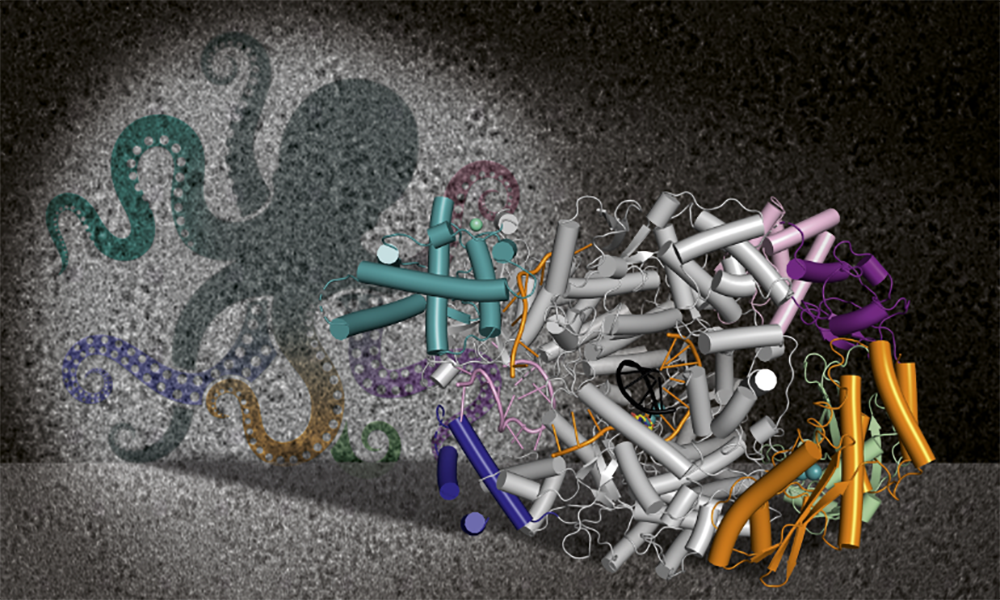
COVID-19: breaking barriers using data
Two years into the pandemic, EMBL researchers and their collaborators continued harnessing data to gain a deeper understanding of the virus.

It’s been said that knowledge is power, and in the context of COVID-19, data-driven advances have been key to expanding knowledge of the SARS-CoV-2 virus.
In 2021, EMBL’s role in exploring the biology of SARS-CoV-2 was significantly rooted in finding new ways to obtain, harness, and analyse data, and making those data freely available to all researchers. In doing so, EMBL scientists also gained novel insights into the interactions between SARS-CoV-2 and its host, at the same time as creating a knowledge base that researchers around the world can benefit from.
Here are some snapshots of the research EMBL scientists performed in this field in 2021:
- England’s COVID-19 crisis between September 2020 and June 2021 was more like a series of overlapping epidemics, rather than a single event, researchers concluded in one of the most detailed analyses of SARS-CoV-2 genomic surveillance information to date. The researchers described the scientific ‘story’ of the pandemic as it unfolded and underlined the importance of high-speed, large-scale genomic surveillance to understand and respond to infectious outbreaks.
- EMBL scientists identified differences in immune responses to COVID-19 in people with no symptoms versus those suffering more serious reactions, looking for correlations at the single-cell level. Collaborating with the Human Cell Atlas, EMBL-EBI researchers found raised levels of specific immune cells in asymptomatic participants.
- In an effort to determine the potential for COVID-19 to begin in a person’s gut, and better understand how human cells respond to SARS-CoV-2, EMBL scientists and collaborators combined computational tools with ‘mini gut’ models – human intestinal cells grown into organoids that mimic where the cells originate. This fundamental research sheds light on the role of the microbiome in COVID-19.

“Our study on COVID-19 elucidated the transmissibility of emerging SARS-CoV2 variants in England, which enabled (British) authorities to implement timely interventions to prevent the further spread of the virus. This research would not have been possible without EMBL’s open culture and great synergies with the Wellcome Sanger Institute.”
— Harald Sager Voehringer, Visitor Programme Postdoctoral Fellow, Huber Group
Explore more 2021 EMBL COVID research highlights:
References
Vöhringer HS et al. (2021). Genomic reconstruction of the SARS-CoV-2 epidemic in England. Nature, 14 October 2021. DOI: 10.1038/s41586-021-04069-y
Stephenson E et al. (2021). Single-cell multi-omics analysis of the immune response in COVID-19. Nature Medicine, 20 April 2021. DOI: 10.1038/s41591-021-01329-2
Triana S et al. (2021). Single-cell analyses reveal SARS-CoV-2 interference with intrinsic immune response in the human gut. Molecular Systems Biology, 27 April 2021. DOI: 10.15252/msb.202110232

